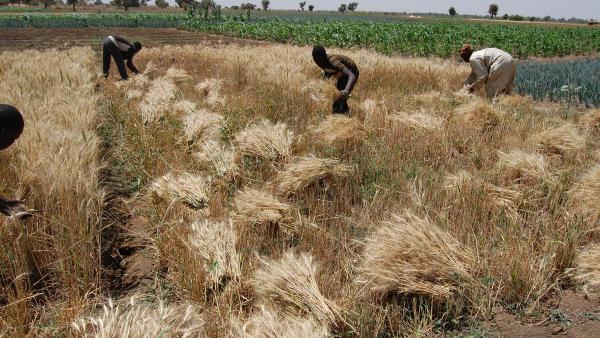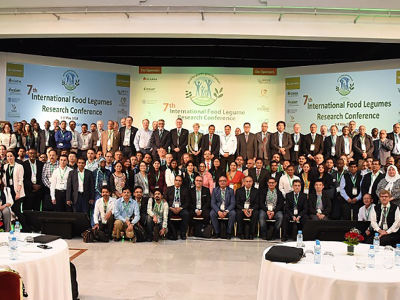Biodiversity & Crop Improvement

ICARDA’s Biodiversity and Crop Improvement Research Program develops resilient plant varieties that can meet current and future challenges faced by the non-tropical dry areas. The Program applies conventional and molecular breeding to develop highly-adapted crops with resistance or tolerance to major biotic and abiotic constraints.
Crop breeding efforts involve: introgressing new alleles from landraces and wild relatives into elite germplasm; mainstreaming nutritional quality (including biofortification) into current breeding programs; and widening the genetic base as a major strategy to realize the full potential of yield, yield stability, quality, and nutrition.
Given that water scarcity is a key driver of yield instability in the dry areas, the Biodiversity and Crop Improvement Program identifies genotypes with better water-use efficiency to minimize yield losses during drought and maximize yield gains during good seasons.
Gene bank and international nurseries
The Program manages a gene bank containing some 157,000 samples of major spring and winter cereals, food legumes, and forage and rangeland species – many drawn from the ‘Fertile Crescent’ in Western Asia, the Abyssinian highlands in Ethiopia, and the Nile Valley, where the earliest known crop domestication practices were first recorded. Many plants are now extinct or endangered in their natural habitats.
The Center’s crop improvement program, and its national partners, use the genetic resources maintained in the ICARDA gene bank to develop nurseries for a wide range of agricultural systems, distributing them worldwide upon request. This service, an integral part of an international nursery trialing system, offers cooperators an opportunity to evaluate genetically diverse germplasm generated through conventional and modern breeding methodologies under their own agro-ecological conditions and socio-economic contexts.
Over the past four decades the Program’s improved cereal and legume varieties have been tested and released by national programs in partnership with ICARDA and adopted by farmers worldwide. It is estimated that these varieties generate net benefits of approximately US$850 million each year.
The Program contributes to the development of new Open Access tools for electronic data capture, data analysis, and decision support – thereby making data on genetic resources and bio-informatics more widely available; and also assesses the status and threats to dry areas agro-diversity, recommending management plans for the conservation of biodiversity-rich areas.




